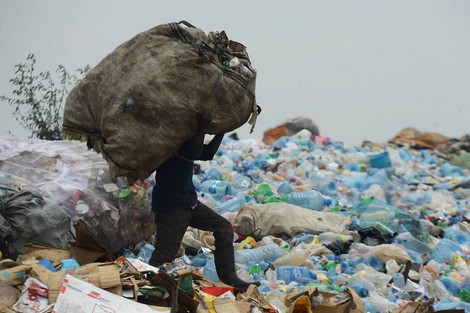Your podcast discovery platform
Curious minds select the most fascinating podcasts from around the world. Discover hand-piqd audio recommendations on your favorite topics.

piqer for: Climate and Environment Boom and bust Global finds
Didem Tali is an award-winning journalist covering international development, gender, displacement and environment issues for English-language media around the world.
Kenya To Bring World's Harshest Plastic Ban
If you are a Kenyan who produces, sells and even uses plastic bags, you might spend four years in prison and pay up to $40,000 in fines. Kenya's high court on Monday paved the way for the world's strongest ban on plastic bags to come into full effect.
The law is currently aiming the industrial manufacturers, although the police will be authorized to also follow individuals.
However, “Ordinary wananchi will not be harmed”, Environment Minister Judi Wakhungu told Reuters, using a Kiswahili term for “common man”.
100 million plastic bags are handed out each year in Kenya, and streets in urban areas of the country are often lined with copious litter, according to the United Nations Environment Program. They’re found in the stomachs of animals, harm the local marine life, clog the sewers, thus help to spread diseases and take hundreds, if not thousands, of years to decompose.
The law means Kenya will be among many African countries such as Cameroon, Guinea-Bissau, Mali, Tanzania, Uganda, Ethiopia, Mauritania and Malawi to bring bans on plastic.
